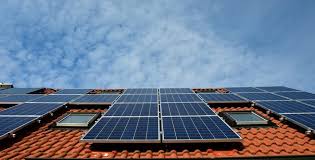Delhi Government’s Solar Policy 2022
The Delhi government recently approved its draft Solar Policy 2022.
What are the key features of Delhi’s Solar Policy 2022?
- The 2022 policy revises the installed capacity proposed by the 2016 policy from 2,000 MW to 6,000 MW by 2025 to increase the share of solar energy in Delhi’s electricity demand from the current 9 percent to 25 percent in 3 years – the highest in India.
- It aims to create a unified single-window state portal to provide information about the benefits of solar PV systems, process-related guidelines and timeline. This portal will be maintained by the Delhi Solar Cell.
- Various incentives will be provided by the Delhi government like generation-based incentives (GBI) and capital subsidies to increase the demand for solar energy.
- The monthly GBI will be provided for residential, group housing societies, and residential welfare associations. For commercial and industrial consumers, the GBI will be provided for 5 years from the date when the solar power is commissioned. An early-bid GBI of Rs.1 per kWh will be provided for the first-time industrial and commercial consumers for the first 200 MW solar deployment.
- Capital subsidies will be provided for residential consumers for mounting raised structures having a minimum ground clearance higher than 6 feet.
- Taxes and duties will not be levied for the generation of energy from the roof top solar (RTS) panels whether for self-consumption or supplied to grid.
- The policy proposes new deployment models like Hybrid RESCO, Community Solar and Peer-to-Peer trading to increase adoption of RTS panels.
- The Hybrid RESCO, which is proposed for the first time in India, enables consumers to access the net metering benefits of solar without making any upfront capital investment by entering into an agreement with their power distribution company.
- The policy puts in place the Community Solar model for the first time India. This model will enable consumers who do not have a suitable roof for installing the RTS panel to be owners of a part of a larger solar energy system set up by a developer within an available land in Delhi.
- The peer-to-peer trading model will enable users of solar energy systems to sell their surplus electricity in real-time via a P2P energy trading platform.
Month: Current Affairs - December, 2022
Category: India Nation & States Current Affairs


